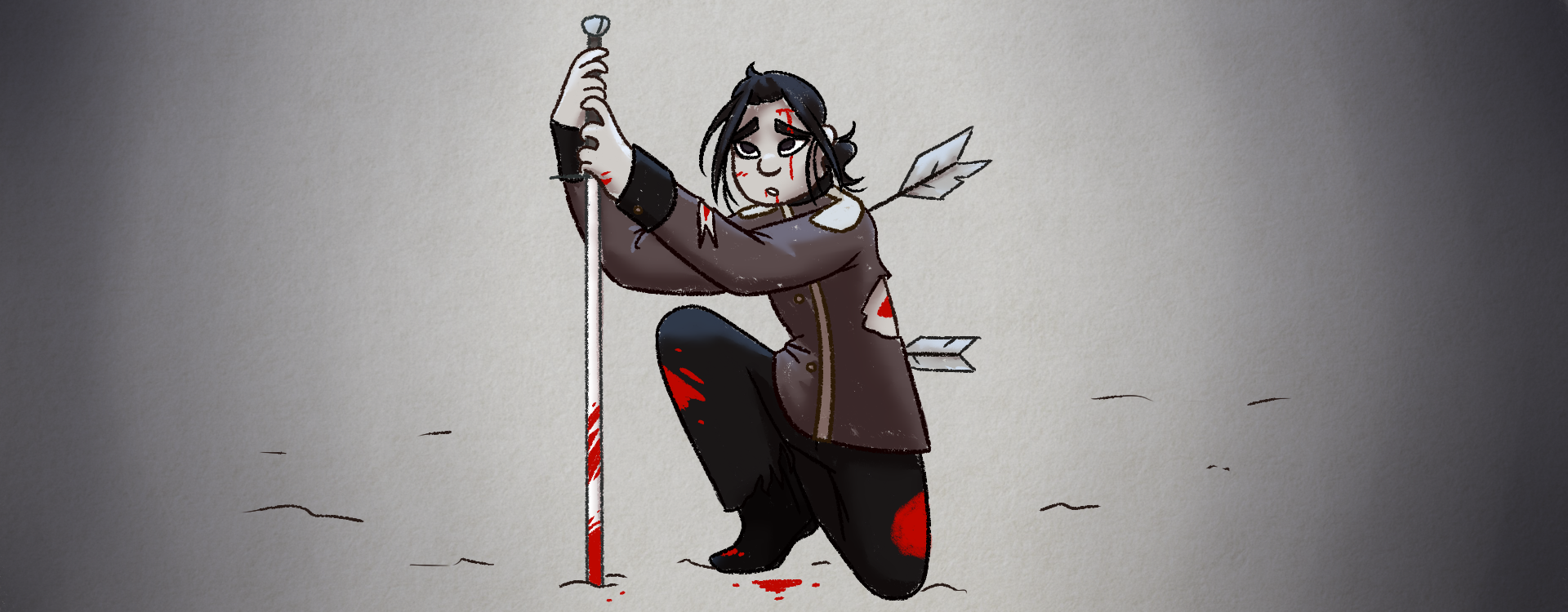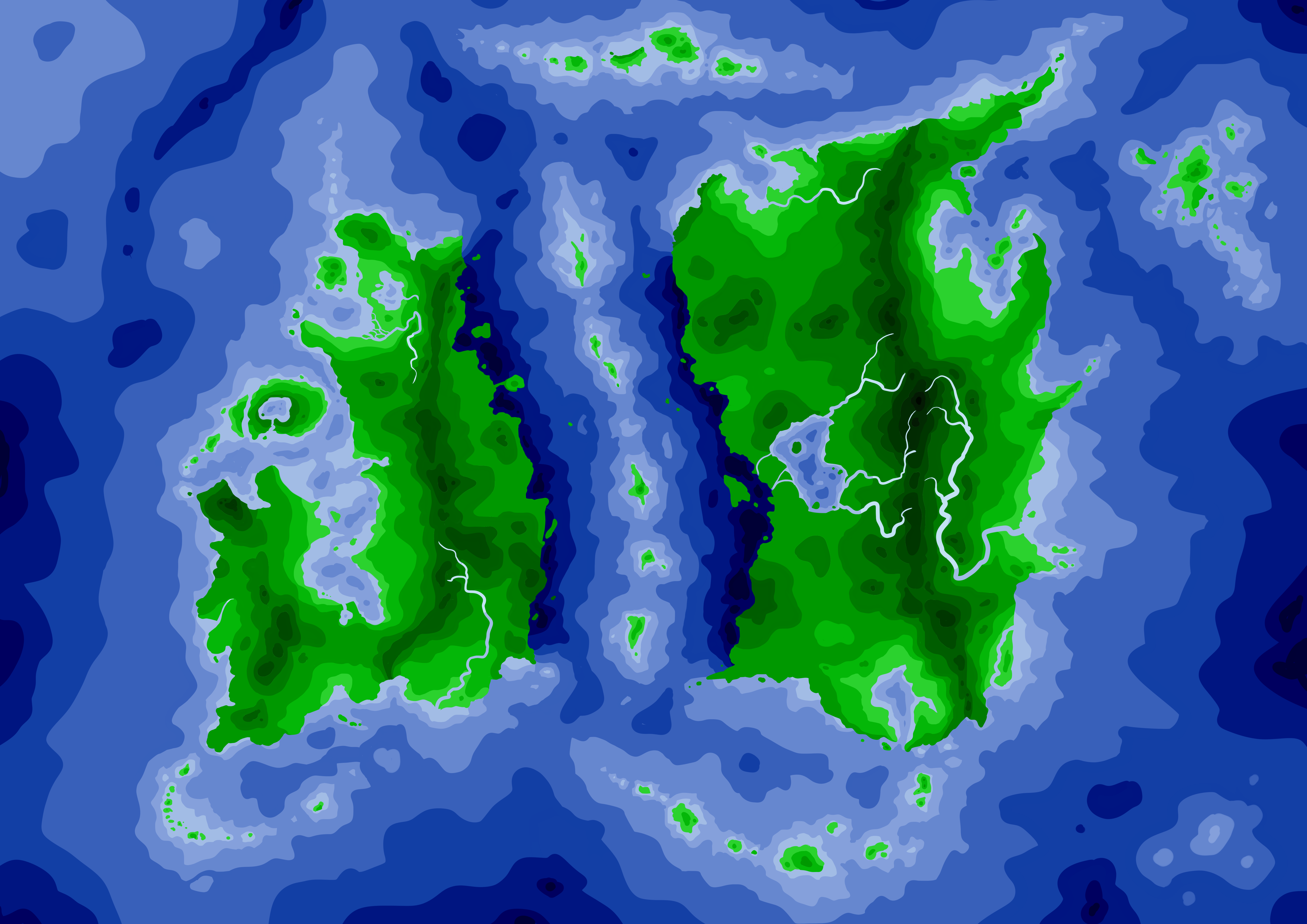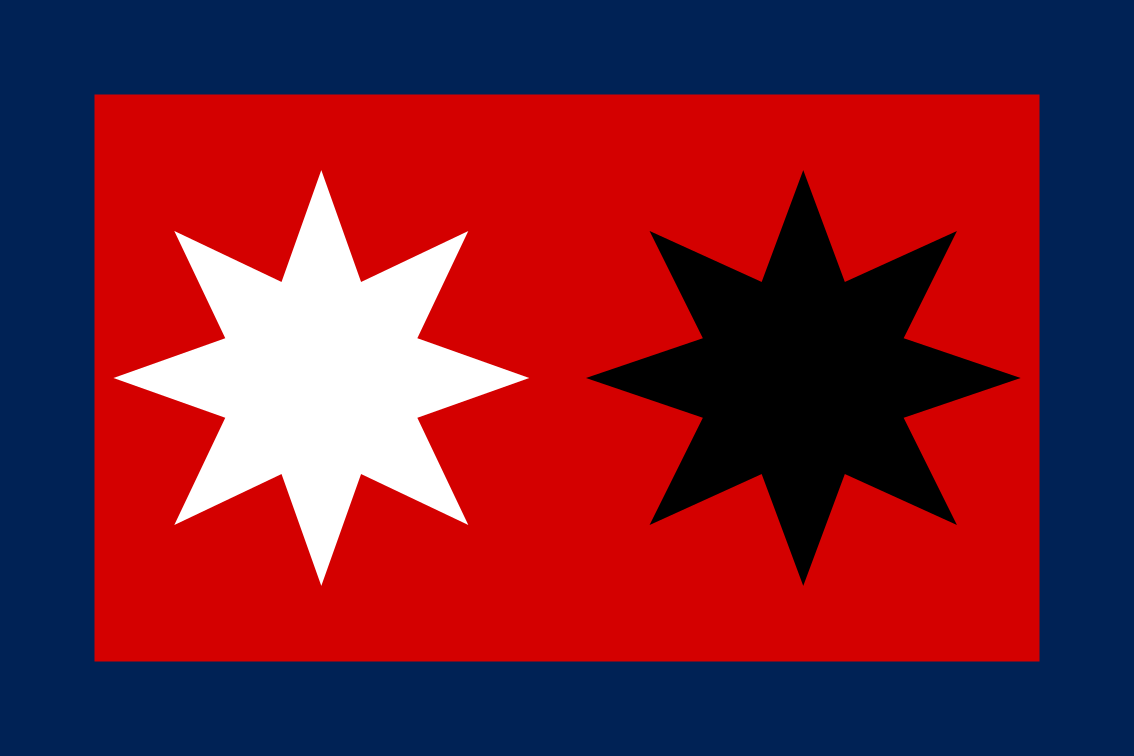The Dusk of Duke Dravulean
The Dusk of Duke Dravulean is the poetic name offered to a collection of similar stories surrounding the assassination of Duke Dravulean of Sinofis. The first of these tales appeared in tandem with the official announcement of his death at the hands of Vosti assassins, with other variants being spread over time. While all based on the same real event, they diverge in the fine details.
Context
The Duchy of Sinofis was mostly left to its own devices and its leaders unknown to the Empire at large, brought to the forefront only when they were punished for defying imperial orders. This defiance had become more and more common over the years, owing to a variety of policies which favoured the south far above the north. Dravulean became the Duke of Sinofis in 326 AC due to the The Separation, a divine calamity which severed the connection between elven and human worlds. Northern discontent with the imperial system grew stronger after this event, especially as Empress Askila III sought to punish the elven republic of Waal Zaimyatl for the tragedy. In 330 AC, a petition led by Dravulean was delivered to the Imperial Palace, demanding changes to many of the policies she and her husband had made. When these requests were rejected, the north revolted, sending the empire into the Vosti Civil War. This rebellion was led in large part by Dravulean, supported by his sibling Glori and many of his noble peers. In spite of this position, and the considerable success achieved during his command, few outside of the rebel army knew who he was. This would change in 333 AC during the imperial siege of Robardon.The Myth
The last assassin's pitiful gurgles were soon drowned out by the duke's own ragged breath. Muuhónum and Glori rushed to his side, but their cries merged with the distant calls of his soldiers - a meaningless cacophony. Dravulean's knees buckled beneath him, and his sword clattered to the ground.The primary version of the Dusk tells of the final hours of the Robardon retreat. Dravulean and his generals argue about whether they should leave now, or remain in the city until the last soldiers and civilians have left. Many of his generals argue for the former, and Dravulean allows any who wish to leave the right to do so, himself intending to remain. Only his younger sibling Glori and their partner Muuhónum choose to remain by his side to watch over the army. As the three quickly travel around the city to ensure all groups are ready to leave or are correctly disguising the retreat, they are attacked by a dozen Vosti spies. Dravulean valiantly defends his companions so that they can warn the rest of the army, and is in fact able to slay all twelve would-be assassins. Before they can even consider celebrating their victory, he collapses from his injuries, with the Dusk ending as Muuhónum tries to carry the dying duke and Glori stumbles on ahead to alert a healer.
The Variants
The Vosti versions have the largest divergence from the original Telziado. In them, Dravulean travelled with a far larger party who outnumber the half-dozen assassins. Despite this, he is killed early into the battle and the assassins succeed in killing the majority of his group before succumbing to their own injuries, leaving only Glori and Muuhónum alive. Due to these changes, it is often called 'The Assassination of Duke Dravulean', and is only considered part of the Dusk in a broader cultural sense. In Waal Zaimyalkee variants, a larger emphasis is played on the role of the elf Muuhónum in defending Dravulean. Some of the assassins killed are said to have died only because of their teamwork, and Muuhónum's grievous injuries in trying to save Dravulean's life are highlighted more than in any other variant. In Skarhan tellings, one of Dravulean's generals is revealed to be a traitor, having divulged the location of a secret city entrance to the Vosti and warned them of the imminent retreat. Glori is also given a larger role, being attacked first but killing the final assassin.Historical Basis
As far as can be determined, Dravulean was slain in an ambush in the streets of Robardon, accompanied only by Glori and Muuhónum. This information was relayed to the Telziado army by Glori themself, with the only elaboration being that Dravulean had "died to protect everyone". Despite the vagueness of these statements, it quickly transformed Dravulean into a martyr for the rebel cause, and tales of his assassination began to embellish more and more to emphasise his sacrifice. The Vosti variant of the Dusk is considered to be mostly propaganda meant to vilify the rebel north and glorify the imperial south. Some historians have suggested, however, that the Vosti account of Dravulean being killed early into the ambush is more accurate than the Telziado account of him single-handedly slaying the assassins.Separated from Home
Destructive Siege
The city of Robardon was of strategic value to the northern rebels, being their southernmost holding and within short distance of the major city of New Fovenis. It was, however, rather poorly fortified. The breaking point came with the news that the Waal Zaimyalkee reinforcements had been delayed due to poor weather in the northern coasts, meaning the rebels would have to hold with rapidly dwindling resources. The decision was made to withdraw to the more defensible city of Breshu.
Grand Master's Palace by manfredrichter







Very cool! Love how the retelling of the story diverges among different cultures!